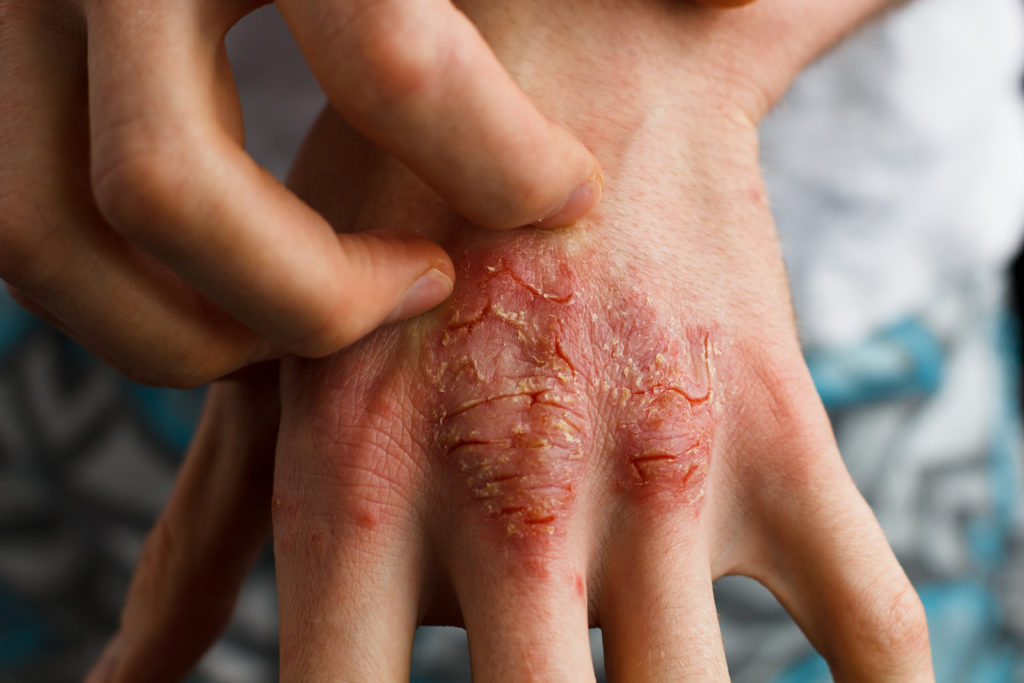
06 Oct How To Manage Dermatitis With Skin Care
Dermatitis can cause skin irritation and discomfort that significantly impacts daily life. This inflammatory skin condition manifests in various forms and requires proper understanding for effective management. Learning more about dermatitis helps individuals recognize symptoms early and seek appropriate treatment to maintain healthy skin. Here is more information on dermatitis and how proper skin care strategies can help:
What Is Dermatitis?
Dermatitis refers to inflammation of the skin, resulting in irritation, redness, and discomfort. The condition encompasses several types, including contact dermatitis, atopic dermatitis, and seborrheic dermatitis. Each type presents distinct characteristics and affects different areas of the body.
Contact dermatitis occurs when skin comes into direct contact with irritating substances or allergens. Atopic dermatitis, commonly referred to as eczema, is a chronic condition that typically begins in childhood. Seborrheic dermatitis primarily affects areas with high oil production, such as the scalp and face.
The condition can be acute or chronic, with symptoms ranging from mild irritation to severe inflammation. Proper identification of the specific type of dermatitis guides treatment decisions and management strategies. A skin care specialist will help diagnose the condition and recommend treatment strategies.
What Causes It?
Multiple factors contribute to the development of dermatitis, with environmental and genetic elements playing significant roles. Allergens such as pollen, dust mites, and certain foods may trigger inflammatory responses in susceptible individuals. Chemical irritants, including soaps, detergents, and cosmetics, frequently cause contact dermatitis.
Genetic predisposition influences the likelihood of developing certain types of dermatitis, particularly atopic dermatitis. Individuals with family histories of allergies, asthma, or eczema face increased risk. Weather conditions and environmental factors also affect dermatitis development. Cold, dry air can strip moisture from skin, while excessive heat and humidity may worsen certain types.
What Are the Symptoms?
Dermatitis symptoms vary depending on the type and severity of the condition. Redness and inflammation typically appear first, followed by itching that ranges from mild to intense. The affected skin may feel warm to the touch and appear swollen or raised. Additional symptoms include dry, scaly patches of skin, small bumps or blisters, changes in skin texture, and pain or burning sensations.
How Can Skin Care Help?
Proper skin care forms the foundation of dermatitis management and prevention. Gentle cleansing removes irritants and allergens while maintaining the skin’s natural barrier function. Using lukewarm water and mild, fragrance-free cleansers prevents further irritation.
Moisturizing plays a valuable role in managing symptoms and preventing flare-ups. Regular application of hypoallergenic moisturizers helps restore the skin barrier and reduces water loss. Products containing ceramides, hyaluronic acid, or glycerin provide adequate hydration without causing additional irritation.
How Is Professional Guidance Beneficial?
A professional medical evaluation provides an accurate diagnosis and personalized treatment plan for dermatitis management. Skin care specialists can distinguish between different types of dermatitis and identify specific triggers through patch testing or other diagnostic methods. This precision leads to more effective treatment strategies.
Healthcare providers can provide education about trigger avoidance and lifestyle modifications that help prevent future flare-ups. They may recommend specific products and ingredients to avoid, as well as suggest suitable alternatives. Regular follow-up appointments track progress and allow for treatment modifications as needed.
Consult a Specialist Today
Understanding dermatitis helps individuals take control of their skin health through proper care and professional guidance. Recognition of symptoms and triggers enables proactive management that can prevent severe flare-ups and complications. Consult a specialist to develop a personalized management plan tailored to your specific type of dermatitis and individual needs.


No Comments